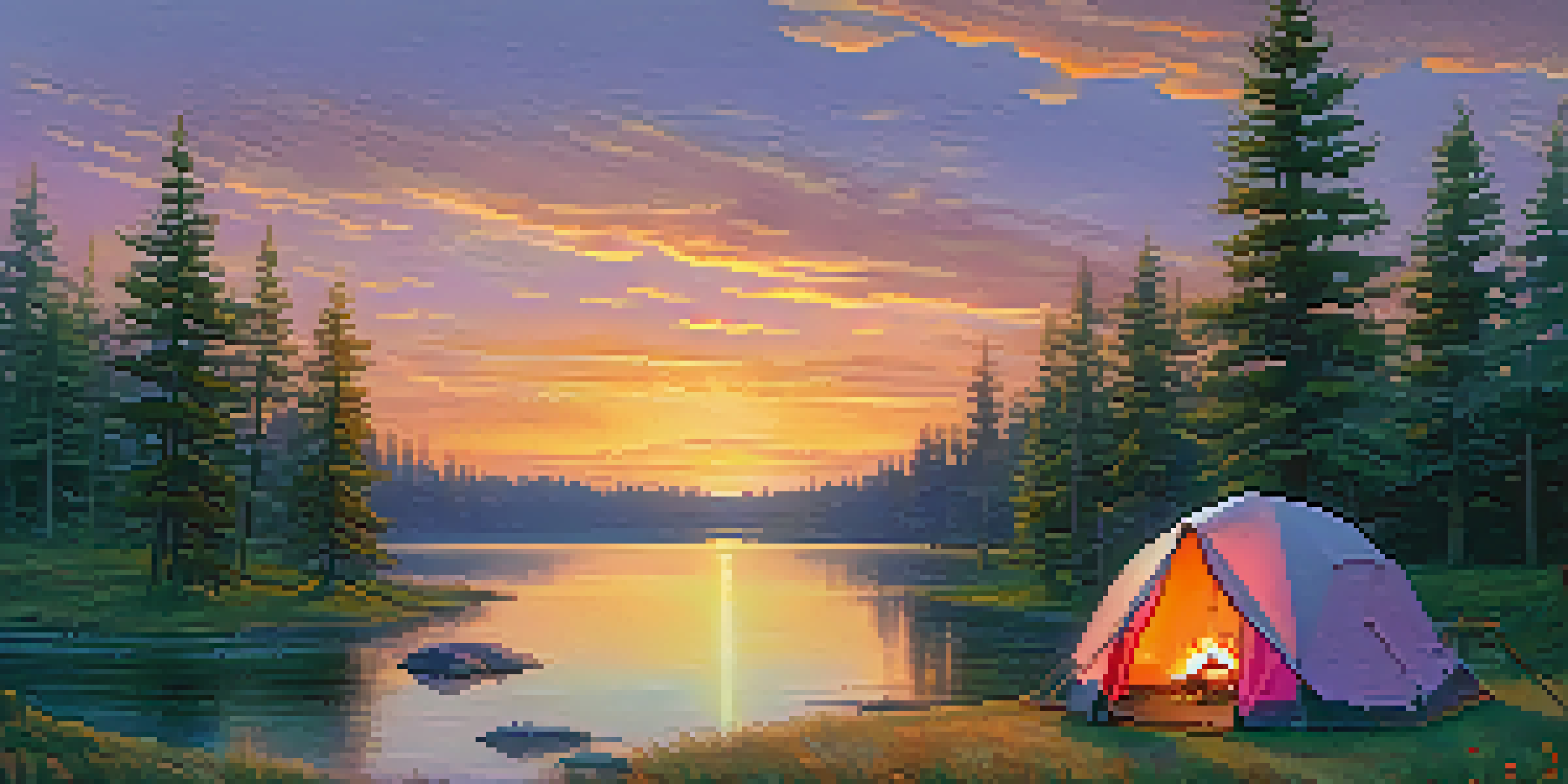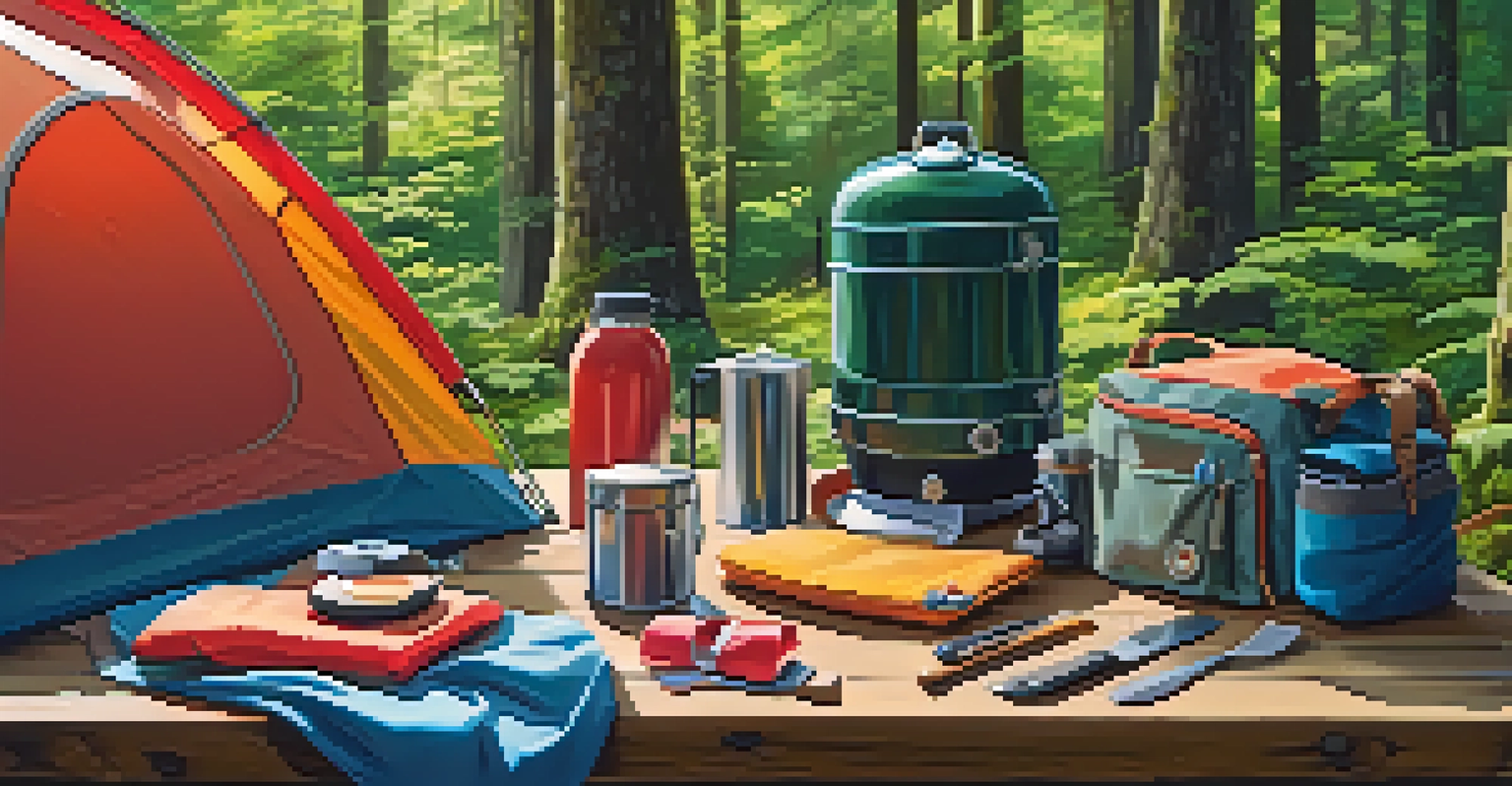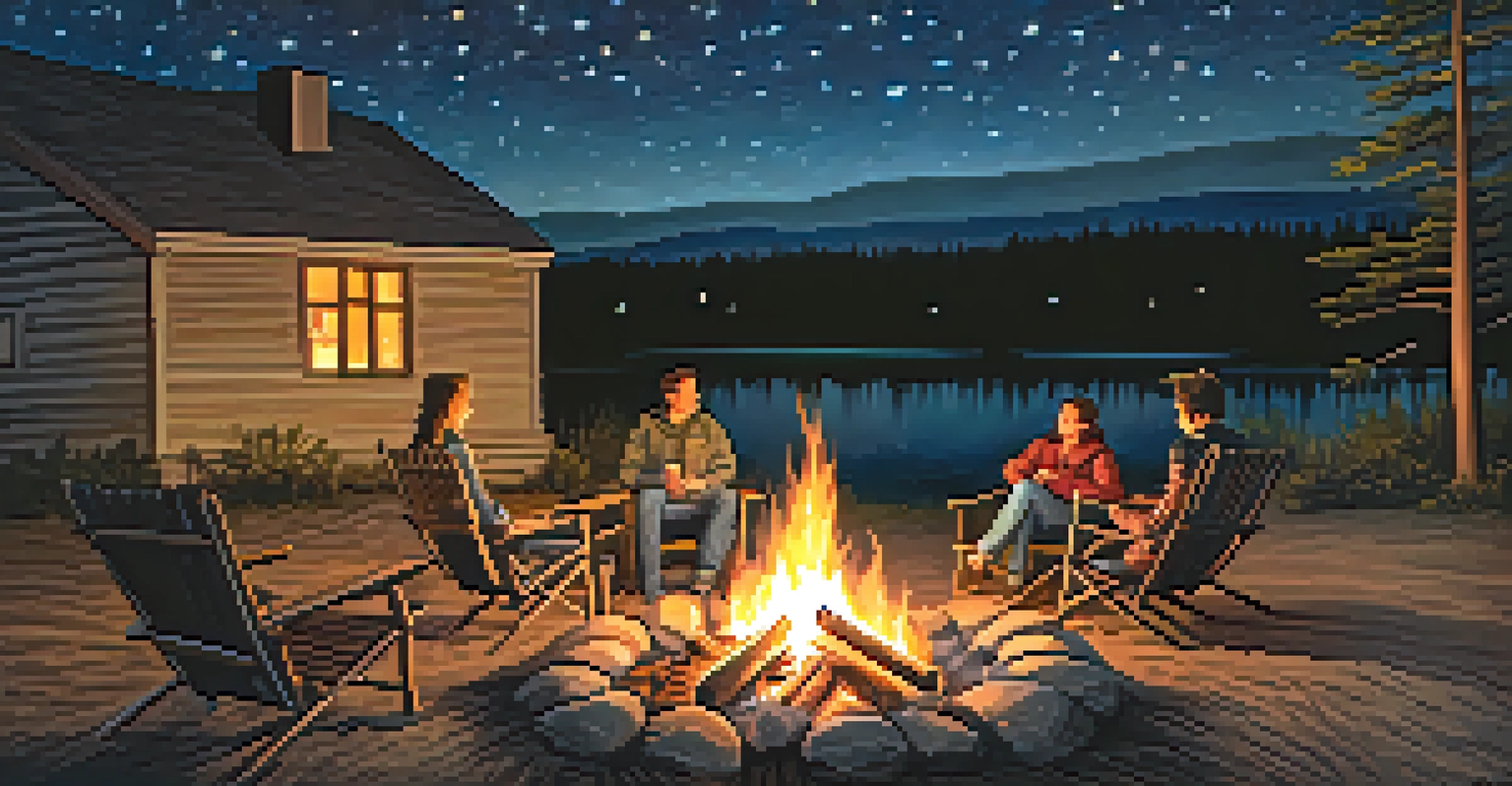Camping Essentials: Preparing for Your Outdoor Adventure

Choosing the Right Campsite for Your Adventure
Selecting the perfect campsite can set the tone for your entire trip. Consider factors like proximity to water sources, the availability of firewood, and the terrain. Whether you're looking for a remote wilderness experience or a family-friendly campground, each option offers unique benefits.
The camp is the place where you can truly find yourself, among the trees and the stars.
Look for established sites that provide amenities such as restrooms and picnic tables if you're new to camping. On the other hand, venturing into the backcountry can offer unparalleled peace and solitude, but it requires more preparation. Researching local regulations and site conditions can help you make an informed decision.
Also, think about the activities you want to enjoy during your stay. Whether it's hiking, fishing, or stargazing, the right campsite can enhance your experience. Remember, the best campsite is the one that aligns with your adventure goals and comfort level.
Essential Gear: What to Pack for Camping
Packing the right gear is crucial to ensuring a successful camping trip. Start with a sturdy tent, sleeping bag, and sleeping pad, as these elements will ensure you have a comfortable place to rest. Don't forget to include a reliable backpack to carry your essentials, especially if you're hiking to your site.

In addition to your shelter and sleeping gear, consider packing cooking equipment like a portable stove, utensils, and a cooler for perishable items. Bring along a first-aid kit, flashlight, and multi-tool for unexpected situations. These items will make your outdoor experience safer and more enjoyable.
Choosing the Right Campsite
Selecting a campsite that aligns with your adventure goals and comfort level enhances your overall experience.
Lastly, think about clothing that matches the weather conditions. Layering is key; pack moisture-wicking fabrics and waterproof gear to stay comfortable. A good pair of hiking boots can make all the difference in your overall experience, so choose wisely.
Food and Cooking: Meal Planning for Campers
A well-planned menu can elevate your camping experience from good to great. Start by considering meals that are easy to prepare and require minimal cleanup. Think about pre-packaged foods, dehydrated meals, or simple recipes that can be cooked over a campfire.
In every walk with nature, one receives far more than he seeks.
Don’t forget to include snacks! Trail mix, granola bars, and fresh fruits can provide quick energy boosts during your adventures. Planning meals that can be cooked in one pot can simplify your cooking process and reduce the amount of gear you need to bring.
Also, remember to pack sufficient water for drinking and cooking, as staying hydrated is crucial. If you're camping in a remote area, consider bringing a water purification system. With thoughtful meal planning, you'll be able to enjoy delicious food without the stress.
Safety First: Preparing for Emergencies in the Wild
Safety should always be a top priority when camping. Start by informing someone about your plans, including where you'll be and when you expect to return. This way, if something goes wrong, someone will know where to look for you.
Next, familiarize yourself with the area you'll be camping in. Understanding potential hazards, such as wildlife, weather changes, or difficult terrain, can help you prepare for emergencies. Carrying a map, compass, and a portable phone charger can also assist in navigation and communication.
Pack Essential Camping Gear
Bringing the right gear, including shelter, cooking equipment, and proper clothing, is vital for a successful camping trip.
Finally, ensure your first-aid kit is stocked with supplies tailored to your needs and the environment. Knowing basic first-aid skills can be invaluable, especially in remote areas. With these precautions in mind, you can enjoy your adventure with greater peace of mind.
Leave No Trace: Respecting Nature While Camping
One of the core tenets of camping is the Leave No Trace principle, which encourages campers to minimize their impact on the environment. This means packing out everything you bring in, including trash, leftover food, and even toilet paper. By doing so, you help preserve the natural beauty for future generations.
Additionally, stick to established trails and campsites to prevent erosion and protect local flora. Avoid picking plants or disturbing wildlife, as this can disrupt delicate ecosystems. Teaching younger campers about these principles can foster a lifelong respect for nature.
Finally, consider using biodegradable soaps and environmentally friendly products whenever possible. Being a responsible camper not only benefits the environment but also enhances the overall experience for everyone enjoying the great outdoors.
Connecting with Nature: Enjoying Your Surroundings
Camping offers a unique opportunity to disconnect from the hustle and bustle of daily life and reconnect with nature. Take time to appreciate your surroundings; listen to the sounds of birds, feel the breeze on your face, and watch the stars illuminate the night sky. These moments can be both calming and invigorating.
Engage in activities that allow you to immerse yourself in nature, such as hiking, fishing, or simply taking a leisurely stroll. Each activity can provide a new perspective on the natural world and enhance your appreciation for the environment. Don’t hesitate to try something new, like birdwatching or nature photography.
Embrace Nature and Reflect
Taking time to connect with your surroundings and reflecting on your experiences can deepen your appreciation for nature.
Lastly, consider journaling or sketching during your trip to capture your experiences. Reflecting on your time in nature can deepen your connection to the outdoors and create lasting memories. Remember, the goal is to relax and enjoy the beauty that surrounds you.
Post-Camping: Cleaning Up and Reflecting
Once your camping adventure comes to an end, it’s essential to clean up properly. This means ensuring your campsite is left in the same condition as you found it, or even better. Take the time to pack away your gear and dispose of any trash responsibly.
Reflecting on your trip is just as important as the preparation that went into it. Spend a few moments thinking about what you enjoyed most, what you could improve on, and any new skills you picked up. This reflection can help inform your future camping adventures.

Lastly, don’t forget to reconnect with your friends or family about the experience. Sharing stories around a campfire is a tradition for a reason, and it's a great way to bond over your adventures. Each trip is a chance to create memories, and talking about them can keep that spirit alive.